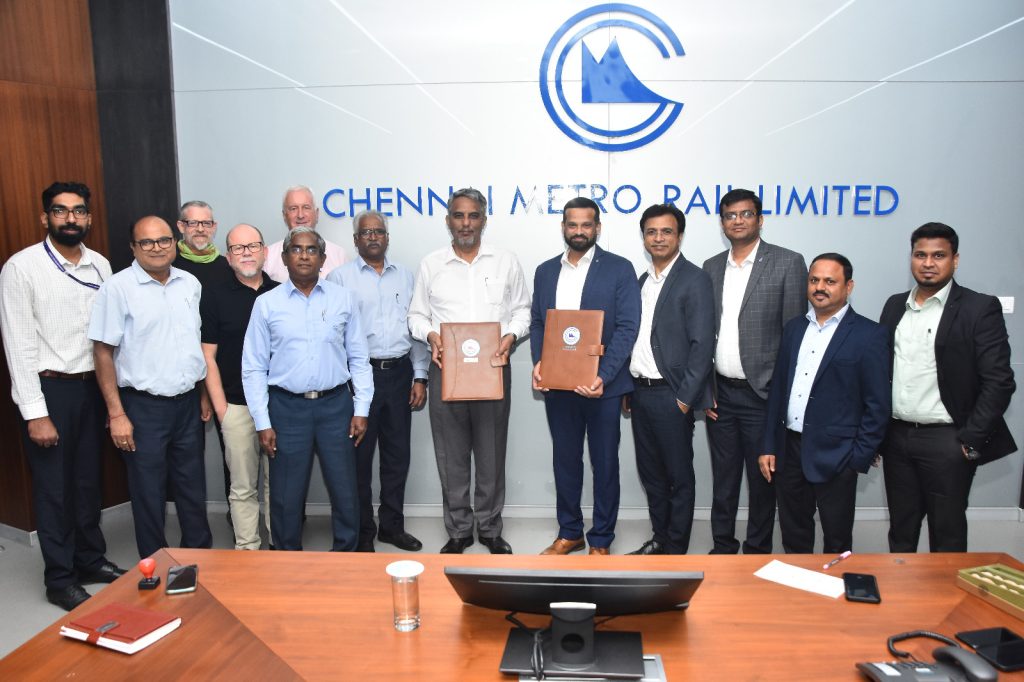 Hitachi Rail signed a USD 200 million contract deliver digital signalling for Chennai metro phase 2 which will allow trains to run at up to 90-second intervals, providing significant capacity and reliability.
Hitachi Rail signed a USD 200 million contract deliver digital signalling for Chennai metro phase 2 which will allow trains to run at up to 90-second intervals, providing significant capacity and reliability.
The contract covers the delivery of communication-based train control (CBTC) system combined with Automatic Train Operation (ATO), enabling services to run without a driver.
By installing Automatic Train Operation (ATO) technology, the trains running on the lines of phase 2 will be able to depart, run at optimum speeds, and brake automatically, without the need for a driver. The technology will boost safety and drive significant maintenance savings. The system will also use ATO technology at the depot, for the operation of doors, and for passenger information and display systems.
The contract covers the design, manufacture, supply, installation, testing and commissioning of the signalling, train control and video management system for 118 km route, 113 stations and two depots, 138 trains and three maintenance vehicles.
By delivering and integrating the digital signalling for Chennai metro phase 2, Hitachi Rail will “boost capacity and support smoother, more reliable passenger journeys,” Noriharu Amiya, Deputy CEO, Hitachi Rail said.
The digital signalling system will be installed on the fourth longest metro system in India, serving the city of Chennai, Tamil Nadu. Chennai metro phase 2 project will include three corridors totaling 119 km of line, 42 km of which will be underground. Under the project, 128 stations will be constructed along the three corridors.
In 2022, Alstom was awarded the contract to supply 26 3-car trains to operate on the lines of Chennai metro phase 2.
The C-3 corridor linking Madhavaram to SIPCOT (industrial complex) will be 45.8 km with 50 stations, the C-4 Lighthouse to Poonamallee Bypass corridor will be 26.1 km long with 30 stations and the 47 km C-5 Madhavaram – Sholinganallur line will be served by 48 stations. The project is expected to be completed by the end of 2026.
The Japan International Cooperation Agency (JICA) is providing financing for the corridor 3 and corridor 5, while the entire corridor 4 and a section of the two above corridors will be supported by the Asian Development Bank (ADB), Asian Infrastructure Investment Bank (AIIB) and the New Development Bank (NDB).
Share on:



